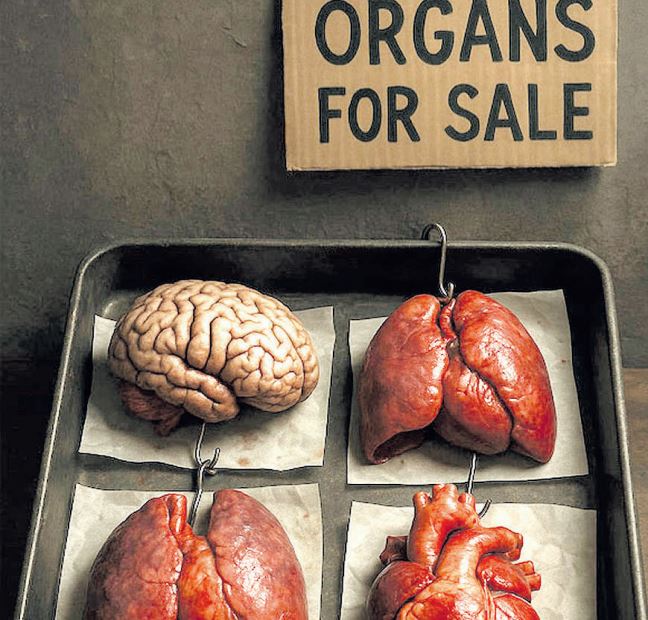
The human body is an extraordinary creation, a complex and unique design that cannot be replicated by science or technology. Its organs serve critical functions, sustaining life in ways that are still beyond human understanding.
While organ donation is a noble and life-saving act, carried out voluntarily within legal and ethical frameworks, it becomes a problem when desperation drives people to commodify their bodies.
The emerging reports of Kenyan youth selling kidneys to foreign recipients, described in a German documentary, are a stark reminder of youth’s vulnerability in the face of economic hardship and moral decay.
Organ trafficking is a grave issue that goes beyond economics; it speaks to a deeper moral and spiritual crisis.
The human body, whether seen through a medical, legal, or ethical lens, is far more than a collection of organs. It is a vessel of life, a bearer of identity, dignity and purpose.
When the body is reduced to a mere object for trade, it devalues not only the traded organ itself but also the person who owns it. Young people, already vulnerable to the pressures of consumerism and poverty, may feel that selling an organ is their only option. This reality speaks to a profound breakdown in the values that guide our society.
The foreigners involved in this illegal trade, those exploiting young people by purchasing their organs for profit, are far worse than the colonisers who once ravaged Africa.
The shame of their actions is immeasurable. The audacity of preying on human suffering for profit, is a clear demonstration of moral bankruptcy that far exceeds the colonial exploitation of the past.
The colonisers may have stripped Africa of its resources, but, if indeed trafficking is taking place, then organ traffickers are stripping its people of their dignity, their health, and their humanity.
This is where life skills education becomes indispensable. Life skills are the tools that allow individuals to make informed, responsible and ethical decisions. These skills, which include critical thinking, financial literacy, emotional intelligence, and ethical decision-making, can help young people navigate the complex pressures of modern life.
It is essential our education system places greater emphasis on life skills, ensuring every student understands not only the technical knowledge of subjects such as, science and mathematics but also the broader skills needed to live a successful and responsible life.
When young people are equipped with life skills, they can better understand their intrinsic worth. They can recognise their value is not tied to their ability to generate money or meet societal expectations of success.
Instead, their worth is rooted in their humanity, in the unique, irreplaceable nature of their being. This understanding of self-worth is a powerful antidote to the forces of exploitation, including the illegal organ trade.
When youth believe in their inherent value, they are less likely to see their bodies as commodities to be sold. Instead, they will recognise the sacredness of their physical form and the moral implications of parting with any part of it for financial gain.
Beyond education, the fight against organ trafficking must involve a collective effort from all sectors of society. Parents, teachers, faith leaders, and community members must come together to reinforce the values of self-respect, integrity, and ethical conduct.
The message must be clear: no amount of money can equal the true value of a human life. We must empower our youth to make choices based on long-term goals, not short-term survival, and teach them that their bodies, their health, and their lives are not for sale.
This collective effort should also include more public awareness campaigns to highlight the dangers of organ trafficking, as well as the legal consequences of such actions.
The legal system, alongside government policy, should continue to strengthen efforts to curb organ trafficking. However, enforcement alone is not enough.
The role of the community in empowering young people cannot be overstated. Society needs to step up its engagement with youth, offering mentorship, career guidance and emotional support to ensure they are not driven to take extreme measures out of desperation.
In addition to the legal and educational efforts, economic empowerment is needed.
Many youth are driven to make drastic choices such as selling organs because of limited access to income-generating opportunities.
Strengthening job creation programmes, vocational training, and entrepreneurship initiatives for youth are critical. If young people are given more opportunities to build their skills and financial independence, they will be less likely to resort to dangerous measures to survive.
This issue of organ trafficking is not just a matter for law enforcement; it is a moral crisis that requires a multi-faceted response. It calls for the strengthening of societal values, the promotion of life skills, and the creation of opportunities that enable young people to thrive without compromising their dignity.
The organs we are born with, including kidneys, are not surplus items that can be traded; they are vital, irreplaceable components of the miracle of life. To see them as anything less is to ignore the sacredness of the human body.
Let us join hands to ensure our youth understand their worth, that they are not defined by their circumstances or by the money they can earn, but by the inherent dignity of being human.
We must create a society where no young person is ever compelled to consider selling his or her organs to survive. Through life skills education, economic empowerment and strong community values, we can build a future where our youth are protected from exploitation and are empowered to live healthy, dignified lives.













